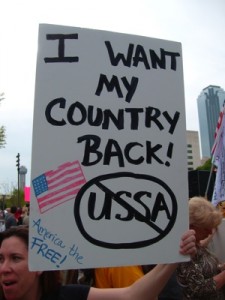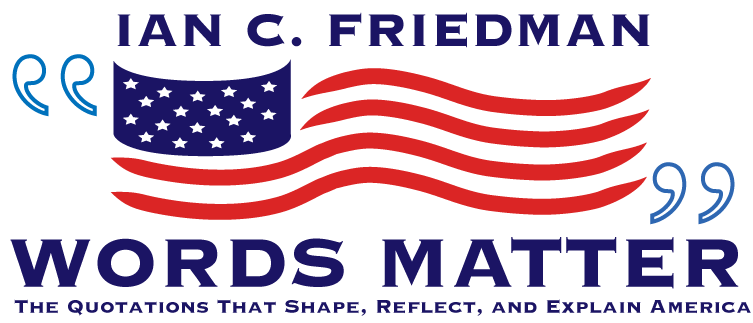“I want my country back!” – Glenn Beck, 2009 and current Tea Party Slogan
 The prominence of what has become known as the Tea Party Movement has been the most compelling and potentially important development on American electoral politics since the election of President Obama in November 2008.
The prominence of what has become known as the Tea Party Movement has been the most compelling and potentially important development on American electoral politics since the election of President Obama in November 2008.
The Tea Party’s adherents hope that they will spark a fundamental and long-lasting change in American politics. Detractors of the Tea Partiers claim that they will become remembered as a group of disgruntled and relatively inconsequential malcontents who received some attention during a time of high national stress. But for now, less than a year-and-a-half after President Obama’s inauguration and the generally accepted birth of the movement, it is clear that the Tea Partiers have had at least some affect on local and national politics.
Whatever the ultimate fate of the Tea Party movement, the quotation that has been most reflective of its followers’ beliefs is their common plea, “I want my country back!” It is frequently expressed by the most conspicuous Tea Party figure, Fox News Channel (FNC) host Glenn Beck, and was used by him at least as early as March 2009.
It is a powerfully demanding and enormously vague expression of frustration by, at its most benign aggrieved, and at its most malignant angry people. It lacks any sense of policy inclination. It leads one to wonder who “took” the country and who had it “taken” from them.
On his Daily Dish blog today, The Atlantic’s Andrew Sullivan captures an important demographic fact that sheds much light on these questions. Sullivan had earlier noted a study describing a “generational cultural gap”–the disparity between the higher percentage of whites among Baby Boomers and older Americans compared to children–of 25% nationally and around 40% in states such as California, Texas, Florida, and Arizona. Using this context, he drove directly toward much of the meaning of “I want my country back!”
Do the math in any state: compare the proportion of whites among seniors to the proportion of whites among children. The bigger the gulf, the likelier the kind of cultural and social panic you see from exactly the demographic that watches FNC and supports the Tea Party. This doesn’t mean all FNC watchers or Tea Partiers fall into this syndrome, but when it comes to immigration, it’s a fascinating dynamic. I see the rise of religious fundamentalism and the emergence of purely symbolic, policy-free movements to “take our country back” as partly psychological expressions of loss in the face of modernity’s complexity and diversity.




